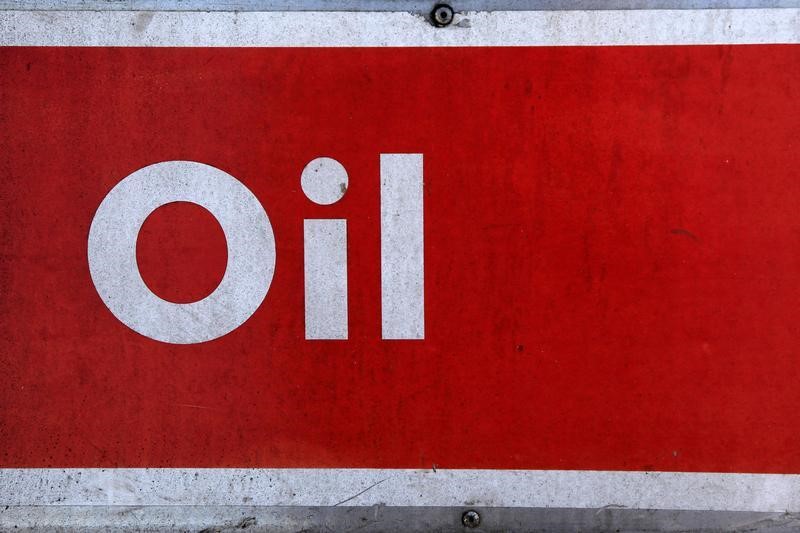* Saudis to freeze output only if others do - report
* OPEC output rises ahead of April 17 meeting in Doha
* Market ignores drop in oil, gas rigs for 15th straight
week
* Dollar adds early pressure to oil
(Adds settlement prices, weekly milestones)
By Barani Krishnan
NEW YORK, April 1 (Reuters) - Oil tumbled about 4 percent on
Friday, after a Saudi prince reportedly said the kingdom will
not freeze output without Iran and other major producers doing
so and data showed the global crude glut was likely to grow.
The dollar .DXY firmed after stronger-than-expected U.S.
jobs data, which also weighed on oil early in the first session
of the second quarter. U.S. employment increased solidly in
March and wages rebounded. FRX/
Brent crude LCOc1 settled down $1.68, or 4.1 percent, at
$39.09 a barrel. It fell 3 percent for the week.
It was a dismal start to the second quarter and April for a
market that finished the first quarter up 6 percent and March 15
percent higher.
U.S. crude CLc1 settled down $1.55, or 4 percent, at
$36.79. It lost 7 percent on the week, after gaining 4 percent
in the first quarter and 14 percent in March.
Prices barely reacted to data showing U.S. oil and gas rigs
falling for a 15th straight week, reaching the lowest levels
since at least the 1940s. RIG/U
Over the past six weeks, oil rallied in a rebound from
12-year lows, after major producers within and outside the
Organization of the Petroleum Exporting Countries floated the
idea of freezing output at January's highs.
But Saudi Deputy Crown Prince Mohammed bin Salman said on
Thursday the OPEC kingpin will not join the program without the
participation of Iran and other major producers, Bloomberg
reported.
A meeting to discuss the production freeze has been
scheduled in Doha, Qatar on April 17. Iran has maintained that
it will not contribute to any freeze until its crude exports
return to pre-sanction levels.
"I think the market interpreted the lack of Saudi reaction
to the Iran position as meaning they are okay with the plan even
if Iran is out," said Dominick Chirichella, senior partner at
the Energy Management Institute in New York.
"So, now we're back to being consistent on what the Saudi
position has been the last two years: That they're going to let
the market decide supply-demand. To me, any freeze is just
psychological. All will agree but nobody will do anything."
Saudi Arabia and Kuwait said this week they will resume
production at the jointly operated 300,000-barrel-per-day Khafji
field.
A Reuters monthly survey from this week showed OPEC output
rose in March on higher supply from Iran after the lifting of
sanctions and near-record exports from southern Iraq.
